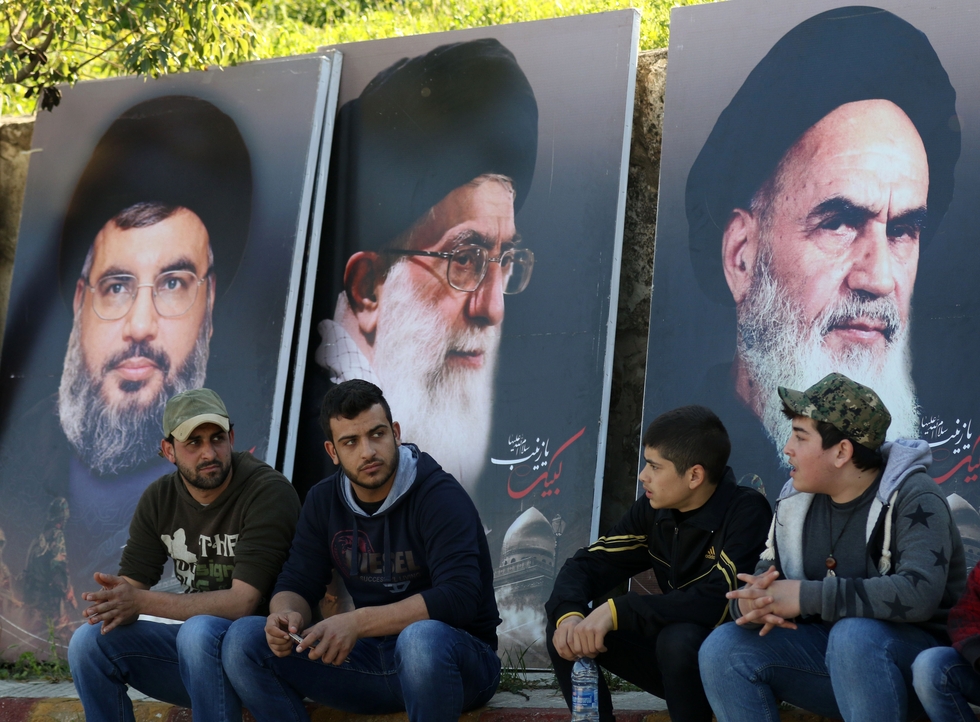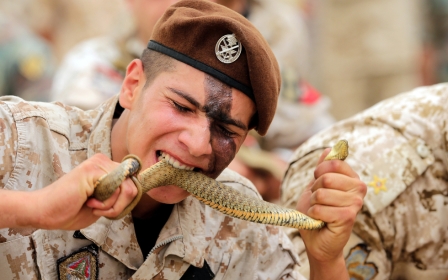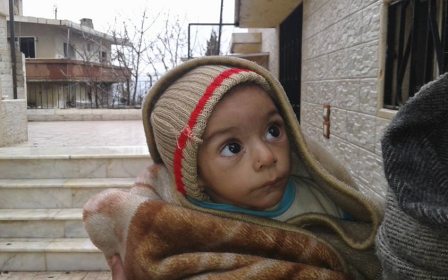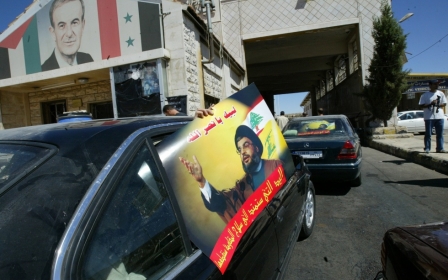Gulf sanctions will hurt Lebanon, not Hezbollah

Animosity between the Gulf states and Lebanon's Hezbollah movement is nothing new. However, the Gulf's recent measures against the party and Lebanon's government - of which Hezbollah is a part - have wider domestic and regional implications, and represent an unprecedented crisis in state relations.
Gulf frustration with Hezbollah's influence on the state is shared by many Lebanese. Justice Minister Ashraf Rifi resigned over the issue last month. However, the measures will likely prove counter-productive to their stated goal of curbing Hezbollah and the influence in Lebanon of its ally Iran, both of which have reacted defiantly.
The measures may also weaken Gulf states' Lebanese allies and be viewed by the Lebanese public, whose welfare they often cite, as collective punishment.
Claims to the contrary from the Gulf are unconvincing because, even with the best of intentions, some of the measures will clearly affect Lebanon as a whole. This is providing a PR opportunity for Hezbollah to voice populist rhetoric and deflect attention from its role in the crisis.
"Does Saudi Arabia have the right to punish Lebanon, its state and its army because a certain party has decided to raise its voice?" asked Hezbollah leader Hassan Nasrallah. "If they have a problem with us, let them keep it with us, and let them spare Lebanon and the Lebanese."
Regardless of Nasrallah's agenda, some of his domestic opponents will be thinking the same.
The string of measures followed the refusal last month of the Lebanese foreign minister, Gibran Bassil - accused in the Gulf of being a puppet of Iran - to support Saudi resolutions against Tehran during two meetings of Arab and Muslim foreign ministers.
The resolutions were prompted by attacks by protesters against the Saudi embassy and consulate in Iran following Riyadh's beheading in January of Saudi Shia cleric Nimr al-Nimr.
The Gulf Cooperation Council on Wednesday declared Hezbollah a "terrorist" group. Last week, Riyadh blacklisted four companies and three Lebanese men for having links to the group.
While the GCC has not yet specified what ramifications the declaration will have, it will reportedly enable the bloc to target Hezbollah's funding. It is unclear how much money the party generates from the Gulf, where it has long been unwelcome. However, it is likely to pale in comparison to its domestic sources and the support it receives from Iran.
Tehran, now unencumbered by international sanctions following last year's nuclear deal, may readily fill any shortfall. It did so for Hamas when the Palestinian party was sanctioned and the Gaza Strip blockaded following its election victory in 2006, giving Iran precisely the leverage that Hamas's enemies wanted to avoid.
Targeting Hezbollah's funding is raising fears that Lebanese Shias in the Gulf will be targeted on sectarian grounds, out of suspicion that their remittances are filling the party's pockets. There are also fears across Lebanese society that the status of tens of thousands of Lebanese working in the Gulf could be in jeopardy.
"Remittances by Lebanese in the GCC have averaged nearly $5 billion annually in recent years, accounting for 70 percent of all remittances that are an important pillar of the economy," wrote Rami Khouri, senior fellow at the Issam Fares Institute at the American University of Beirut.
Other measures, taken last month, will clearly be felt far wider than Hezbollah and its support base. Five of the six GCC members - Kuwait, Qatar, Saudi Arabia, the United Arab Emirates and Bahrain - called on their citizens to leave Lebanon or avoid travelling there.
This at a time when domestic and regional circumstances have hit tourism in Lebanon, where Gulf citizens have been big spenders.
Before that, Riyadh halted billions of dollars in aid to the Lebanese army. A Saudi official cited "hostile Lebanese positions resulting from the stranglehold of Hezbollah on the state," adding that Riyadh would conduct "a comprehensive review of its relations with the Lebanese republic".
The thinking seems to be that it is pointless, indeed dangerous, to prop up a state that is increasingly dominated by the benefactors' enemies.
The same approach was applied by Gulf states in Yemen before the Saudi-led Operation Decisive Storm. They suspended economic and military aid to the state amid sweeping territorial gains by Houthi rebels and forces loyal to former president Ali Abdullah Saleh, which by then had captured the capital Sanaa.
The logic behind this approach is understandable, but it will likely be as ineffective in Lebanon as it was in Yemen.
Measures that weaken the state militarily and economically - particularly when Lebanon is already suffering from an economic crisis, political deadlock and militancy - make it easier for Hezbollah to extend its control.
If the aim is to push the Gulf's Lebanese allies to challenge more forcefully the party's domination, the opposite effect is more likely. After all, the issue is not so much a lack of will but a lack of means, and the GCC's measures do not strengthen their allies' hands.
While the GCC loses leverage and potentially alienates Lebanese who do not sympathise with Hezbollah, the measures give Iran an opportunity to increase its own influence. Tehran has already offered to fill the void created by the Saudi withdrawal of military aid.
Furthermore, there is a danger of unrealistic expectations regarding foreign policy issues from a Lebanese cabinet that includes members from both political coalitions. Lebanese governments have avoided taking strident stances on regional crises so as not to get dragged into them or exacerbate internal tensions.
As with the attacks on the Saudi diplomatic missions in Iran, this can be taken as weakness, ingratitude or bias. However, it should be seen in the context of trying to avoid greater fractures in a country and society that are already deeply polarised and affected by their surroundings.
After all, it is not as if Beirut supported the Iranian attacks, or as if individual ministers (including Prime Minister Tamam Salam) did not condemn them.
Unity governments may be hamstrung or seem bi-polar, but the alternative in an unstable country could be open conflict - something Lebanese understandably want to avoid, particularly given their history of civil war.
The country has long been a proxy playground, but the success of outside protagonists has depended on them bolstering their domestic allies. Amid the desire to show resolve, the Gulf states may be inadvertently bolstering their enemies.
- Sharif Nashashibi is an award-winning journalist and analyst on Arab affairs. He is a regular contributor to Al Arabiya News, Al Jazeera English, The National, and The Middle East magazine. In 2008, he received an award from the International Media Council "for both facilitating and producing consistently balanced reporting" on the Middle East.
The views expressed in this article belong to the author and do not necessarily reflect the editorial policy of Middle East Eye.
Photo: Lebanese sit in front of giant posters bearing portraits of Hassan Nasrallah, the head of Lebanon's militant Shia movement Hezbollah (L), the founder of Iran's Islamic Republic, Ayatollah Ruhollah Khomeini (R) and Iran's supreme leader Ayatollah Ali Khamenei (C) on 1 March, 2016, in the southern town of Kfour, in the Nabatiyeh district (AFP).
New MEE newsletter: Jerusalem Dispatch
Sign up to get the latest insights and analysis on Israel-Palestine, alongside Turkey Unpacked and other MEE newsletters
Middle East Eye delivers independent and unrivalled coverage and analysis of the Middle East, North Africa and beyond. To learn more about republishing this content and the associated fees, please fill out this form. More about MEE can be found here.





